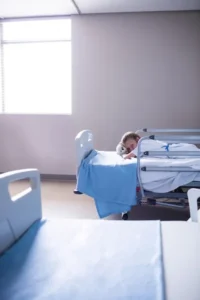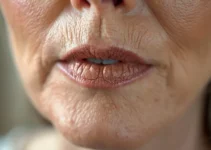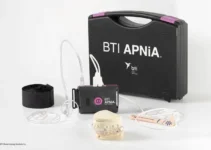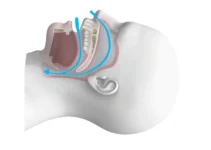Exploring the offerings of a sleep clinic in the UK can be transformative for those suffering from sleep disorders. Such clinics specialize in diagnosing and treating a range of sleep-related issues, from insomnia to sleep apnea. By utilizing advanced technology and tailored therapy plans, sleep clinics provide individuals with the necessary tools to improve their sleep quality, thereby enhancing overall health and wellbeing. Understanding the services and benefits of these clinics is the first step towards achieving uninterrupted, restful nights.
Understanding the Importance of a Sleep Clinic in the UK
In today’s fast-paced world, many individuals in the UK struggle with sleep-related issues. Understanding the importance of a sleep clinic can be life-changing for those suffering. A sleep clinic provides comprehensive services to diagnose, treat, and manage sleep disorders, ensuring individuals achieve restful sleep and improved overall health.
With a multitude of sleep disorders affecting the population, sleep clinics offer specialized care tailored to each patient’s needs. By seeking help from a sleep clinic, patients can receive professional assessments and treatment plans that significantly enhance their quality of life. Let’s delve deeper into what a sleep clinic is, the common disorders they treat, and the benefits of professional sleep assessments.
What is a Sleep Clinic?
A sleep clinic is a medical facility dedicated to the diagnosis and treatment of sleep disorders. Staffed with a team of specialists, including sleep physicians, technicians, and therapists, these clinics utilize state-of-the-art technology and methodologies to help patients manage and overcome sleep issues. 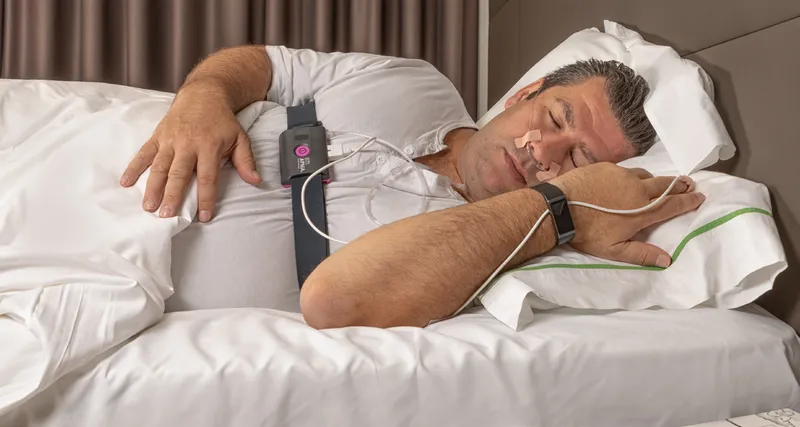
At a sleep clinic, patients undergo various diagnostic tests, such as polysomnography (PSG) and multiple sleep latency tests (MSLT), to accurately identify the root causes of their sleep problems. These tests monitor vital signs, brain activity, and other physiological variables while the patient sleeps.
Based on the results, the specialists develop a personalized treatment plan that may include lifestyle changes, medication, or specialized therapies. This individualized approach ensures that each patient receives the most effective care tailored to their unique condition.
Common Sleep Disorders Treated
Sleep clinics address a wide range of sleep disorders, each with its unique symptoms and treatment protocols. Some of the most common sleep disorders treated include:
- Insomnia: Difficulty falling or staying asleep, often leading to daytime fatigue and irritability.
- Sleep Apnea: A condition where breathing repeatedly stops and starts during sleep, often causing loud snoring.
- Restless Legs Syndrome (RLS): An uncontrollable urge to move the legs, typically in the evenings, that can disrupt sleep.
- Narcolepsy: A chronic sleep disorder characterized by overwhelming daytime drowsiness and sudden attacks of sleep.
By diagnosing and treating these disorders, sleep clinics significantly improve patients’ sleep quality, overall health, and daily functioning.
Benefits of Professional Sleep Assessments
Seeking professional sleep assessments at a sleep clinic offers numerous benefits. Firstly, patients receive an accurate diagnosis based on comprehensive testing and expert evaluation. This precision ensures that the treatment plan is well-suited to the specific disorder, increasing the likelihood of successful management.
Secondly, professional assessments lead to tailored treatment plans. Rather than a one-size-fits-all approach, sleep clinics devise treatment strategies that consider the patient’s lifestyle, health history, and personal preferences.
Finally, ongoing support and monitoring from a sleep clinic provide patients with the guidance and adjustments needed to maintain effective treatment over time. This continuous care helps in adjusting treatment plans as needed, ensuring sustained improvement in sleep quality and overall health.
Understanding the significance of sleep clinics and their role in improving sleep health is vital. For more insightful articles on how medical advancements can enhance your quality of life, make sure to explore other sections of our blog.
Personalized Treatment Plans for Better Sleep
Getting sufficient sleep is crucial for maintaining overall health and well-being. Each person’s sleep needs and disturbances can be unique, which is why a one-size-fits-all approach often falls short. That’s where personalized treatment plans come into play. These plans are designed to address each individual’s specific sleep issues, helping them achieve the best possible results.
Recent studies have shown that personalized treatment plans significantly improve sleep quality compared to generic recommendations. By focusing on the unique characteristics and needs of each patient, healthcare providers can develop targeted interventions that address the root causes of sleep disturbances, leading to better outcomes.
If you’ve been struggling with sleep despite trying various remedies, it may be time to consider a personalized treatment plan. These plans incorporate a comprehensive approach, employing multiple diagnostic and therapeutic techniques tailored to your specific situation.
Individual Assessments and Diagnostics
The first step in creating a personalized treatment plan for better sleep is conducting a thorough assessment. This process involves gathering detailed information about your sleep habits, lifestyle, and any underlying health conditions. Healthcare providers often use sleep diaries, questionnaires, and interviews to collect this data.
Advanced diagnostic tools such as polysomnography (sleep studies), actigraphy, and portable monitoring devices can provide additional insights. These tools help identify specific sleep disorders, such as obstructive sleep apnea, restless legs syndrome, or insomnia. Detailed assessments enable healthcare professionals to tailor treatment plans to your specific needs.
Individual assessments also consider psychological and emotional factors that may affect sleep. Stress, anxiety, and depression are common culprits that can disrupt sleep patterns. By addressing these factors, a personalized treatment plan can offer a more comprehensive solution.
Through a combination of subjective and objective assessments, healthcare providers gain a holistic understanding of your sleep issues. This thorough evaluation is crucial for developing an effective, tailored treatment plan that addresses all aspects of your sleep health.
Tailored Therapies and Interventions
Once the assessment phase is complete, the next step is to develop tailored therapies and interventions. These can vary widely depending on the specific sleep disorder and individual needs. Behavioral therapies, such as Cognitive Behavioral Therapy for Insomnia (CBT-I), are often effective for treating chronic insomnia. This therapy focuses on changing sleep habits and addressing any underlying psychological issues.
For those diagnosed with sleep apnea, treatments may include Continuous Positive Airway Pressure (CPAP) therapy, dental appliances, or even surgical interventions. The choice of treatment depends on the severity of the condition and the patient’s preferences and lifestyle. Nutritional counseling, lifestyle changes, and stress management techniques can also be integral parts of a personalized treatment plan. For example, improving sleep hygiene by establishing regular sleep schedules and creating an optimal sleep environment can significantly enhance sleep quality.
Medications may be prescribed in some cases, but they are usually considered a last resort due to potential side effects and the risk of dependency. Instead, the focus is often on holistic and sustainable solutions that promote long-term sleep health.
If you found this article helpful, we invite you to explore our other articles on sleep health and wellness. Our aim is to provide you with the most up-to-date information and practical tips to help you achieve the restful sleep you deserve.
“`html
Advanced Techniques and Technologies in Sleep Therapy
Modern sleep therapy has evolved significantly, integrating advanced techniques and technologies to help individuals achieve better sleep quality. These innovations are designed to address common sleep disorders such as insomnia and sleep apnea, improving the overall health and well-being of patients. By utilizing these advanced methods, healthcare professionals can provide more effective and personalized treatments.
In this article, we will explore three key areas where advanced techniques and technologies are making a substantial impact: Cognitive Behavioral Therapy for Insomnia (CBT-I), the use of CPAP machines for sleep apnea, and innovative monitoring devices. Each of these approaches offers unique benefits and has been supported by extensive research.
Let’s delve into these advanced methods to understand how they can enhance sleep therapy and promote healthier sleep patterns for those struggling with sleep disorders.
Cognitive Behavioral Therapy for Insomnia (CBT-I)
Cognitive Behavioral Therapy for Insomnia (CBT-I) is a highly effective, non-pharmacological treatment that addresses the root causes of insomnia. Unlike sleep medications, which often provide only temporary relief, CBT-I aims to equip patients with long-term skills to improve their sleep. Studies have shown that CBT-I can significantly reduce insomnia symptoms and improve sleep quality by targeting negative thought patterns and behaviors that contribute to insomnia.
CBT-I involves several core techniques, including:
- Sleep Education: Teaching patients about healthy sleep habits and the importance of sleep hygiene.
- Cognitive Restructuring: Helping patients identify and challenge negative thoughts about sleep that fuel anxiety and insomnia.
- Stimulus Control: Encouraging patients to associate the bed with sleep only, by eliminating activities like watching TV or using electronic devices in bed.
- Sleep Restriction: Limiting time in bed to increase sleep efficiency and build stronger sleep pressure.
By combining these techniques, CBT-I helps patients develop healthier sleep patterns and achieve more restful nights.
Use of CPAP Machines for Sleep Apnea
Continuous Positive Airway Pressure (CPAP) machines are one of the most effective treatments for obstructive sleep apnea (OSA). OSA is a condition where the airway becomes blocked during sleep, causing breathing to stop and start repeatedly. CPAP machines work by delivering a steady stream of air through a mask, keeping the airway open and preventing apneas throughout the night.
The benefits of using CPAP machines include:
- Improved Sleep Quality: By preventing interruptions in breathing, CPAP users often experience deeper and more restorative sleep.
- Reduced Daytime Sleepiness: Better nighttime sleep leads to increased alertness and reduced fatigue during the day.
- Lowered Risk of Health Issues: Untreated sleep apnea is associated with higher risks of cardiovascular disease, hypertension, and diabetes. CPAP can help mitigate these risks.
While adapting to a CPAP machine can take time, the positive impacts on overall health and well-being make it a worthwhile investment for those suffering from sleep apnea.
Innovative Monitoring Devices
Innovative monitoring devices are revolutionizing the way we diagnose and manage sleep disorders. These advanced tools provide detailed insights into sleep patterns, helping both patients and healthcare providers make informed decisions about treatment. Wearable devices, smart mattresses, and mobile apps are some of the technologies leading this transformation.
Some key benefits of these monitoring devices include:
- Real-Time Data Collection: Continuous tracking of sleep stages, heart rate, and breathing patterns provides valuable data for personalized treatment plans.
- Early Detection: Identifying sleep issues early on allows for prompt intervention and prevention of more severe complications.
- Convenience: Many of these devices are user-friendly and can be easily integrated into daily routines.
Research supports the effectiveness of these devices in improving sleep quality and patient outcomes. As technology continues to advance, we can expect even more sophisticated solutions to emerge, offering new ways to tackle sleep disorders and enhance overall sleep health. If you found this article helpful, be sure to check out our other articles on sleep therapy techniques and innovations for more insights into achieving better sleep and overall well-being.
“`
FAQs on Sleep Clinic UK Services
If you’re exploring solutions for restless nights, you may benefit from understanding more about what Sleep Clinic UK offers. Here are some common queries answered to help you explore potential solutions for sleep issues.
What treatments does Sleep Clinic UK offer for sleep disorders?
Sleep Clinic UK provides a comprehensive range of treatments tailored to address various sleep disorders, including insomnia, sleep apnea, and restless leg syndrome. Treatment approaches may include behavioral therapy, medical prescriptions, and possibly CPAP machines for sleep apnea sufferers.
How do I know if I need to visit a sleep clinic?
If you regularly experience difficulty falling asleep, maintaining sleep, or feel continuously tired during the day, it might be advisable to visit a sleep clinic. Consultations at Sleep Clinic UK can offer diagnostics and tailored treatment plans based on state-of-the-art sleep studies and expert evaluations.

My name is Salman Kapa, a 73-year-old expert in bone regeneration and dental implantology. With decades of experience in the field, I am dedicated to advancing our understanding of oral health and hygiene. Through my research and writing, I aim to contribute to the development of innovative solutions in dental care.

